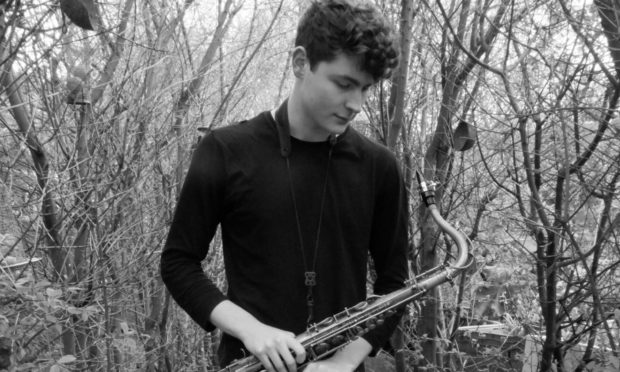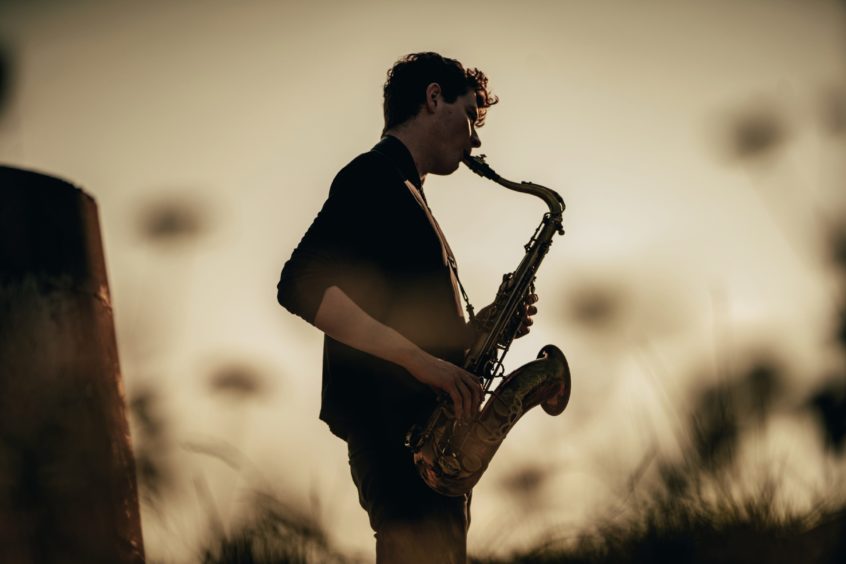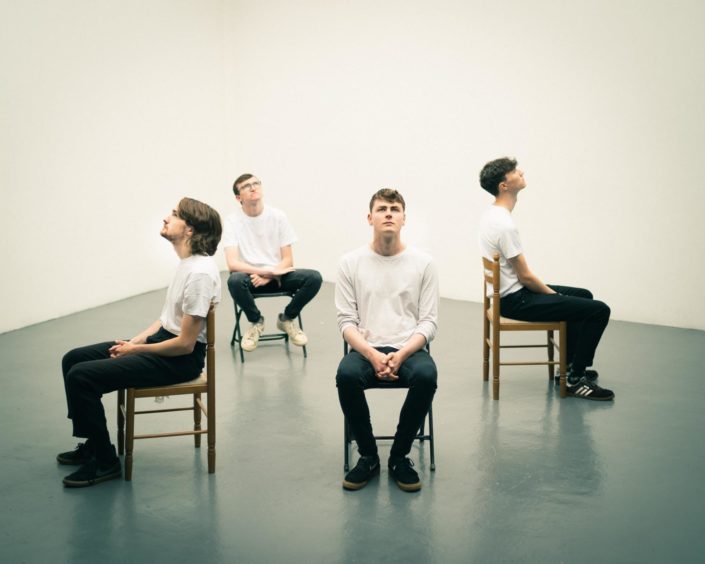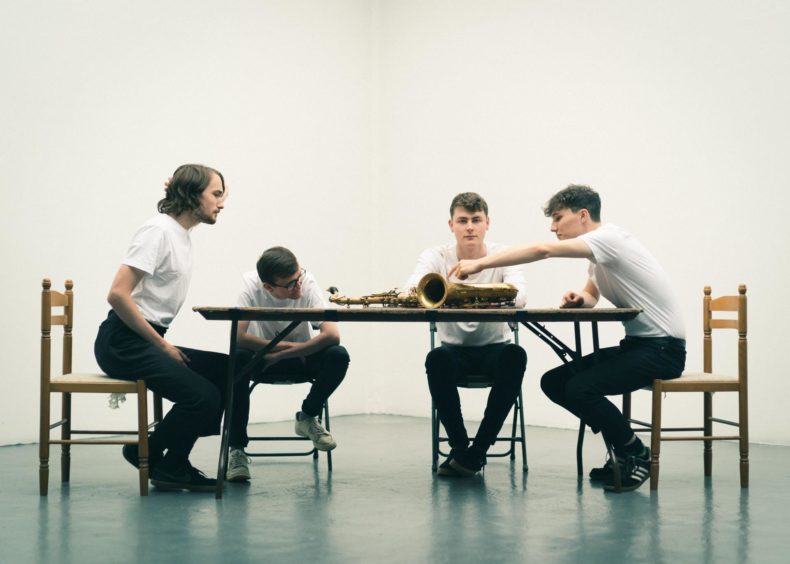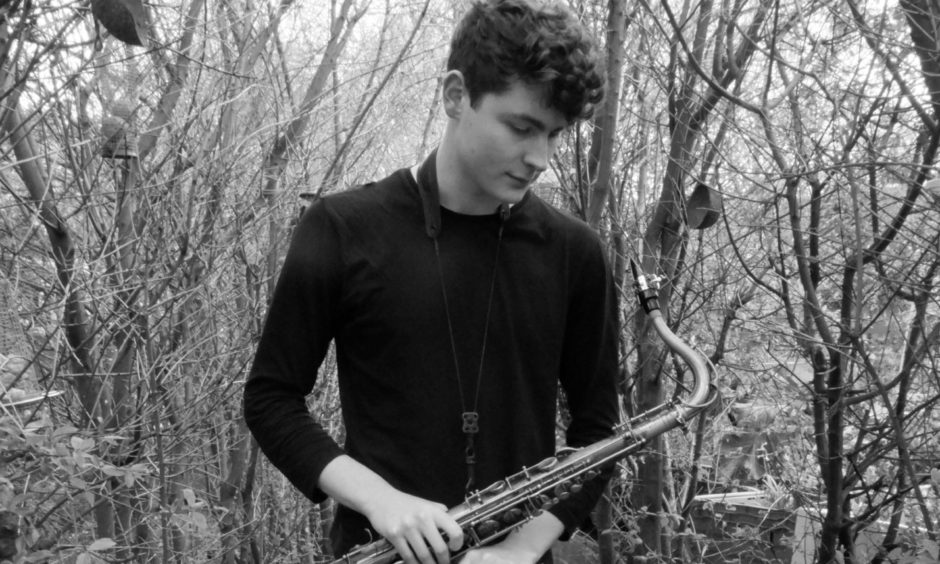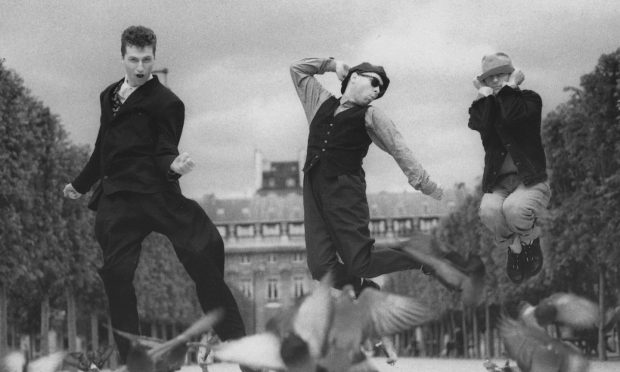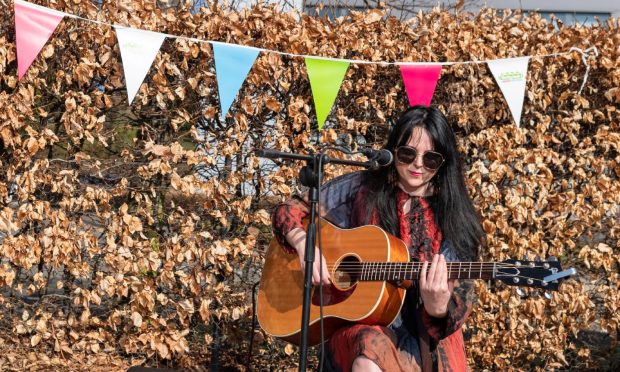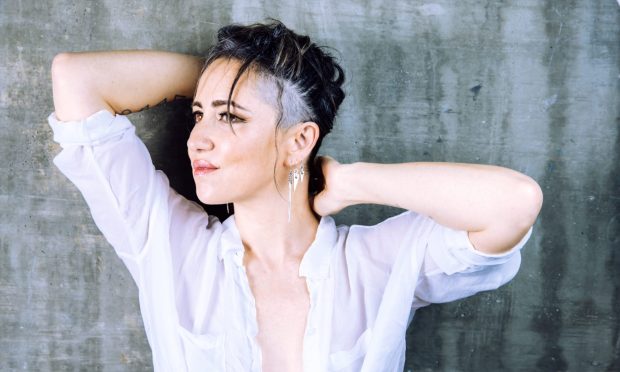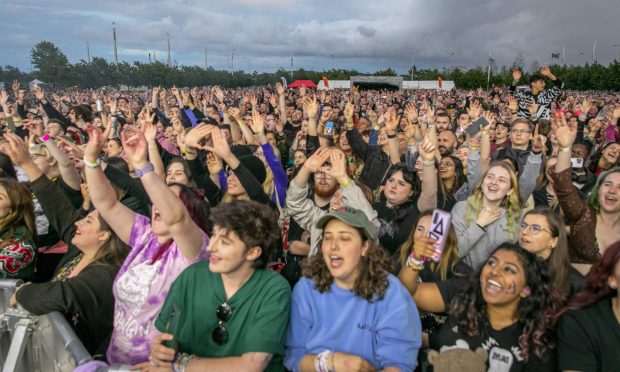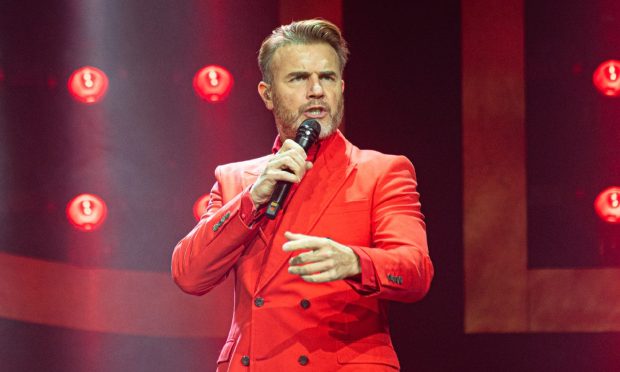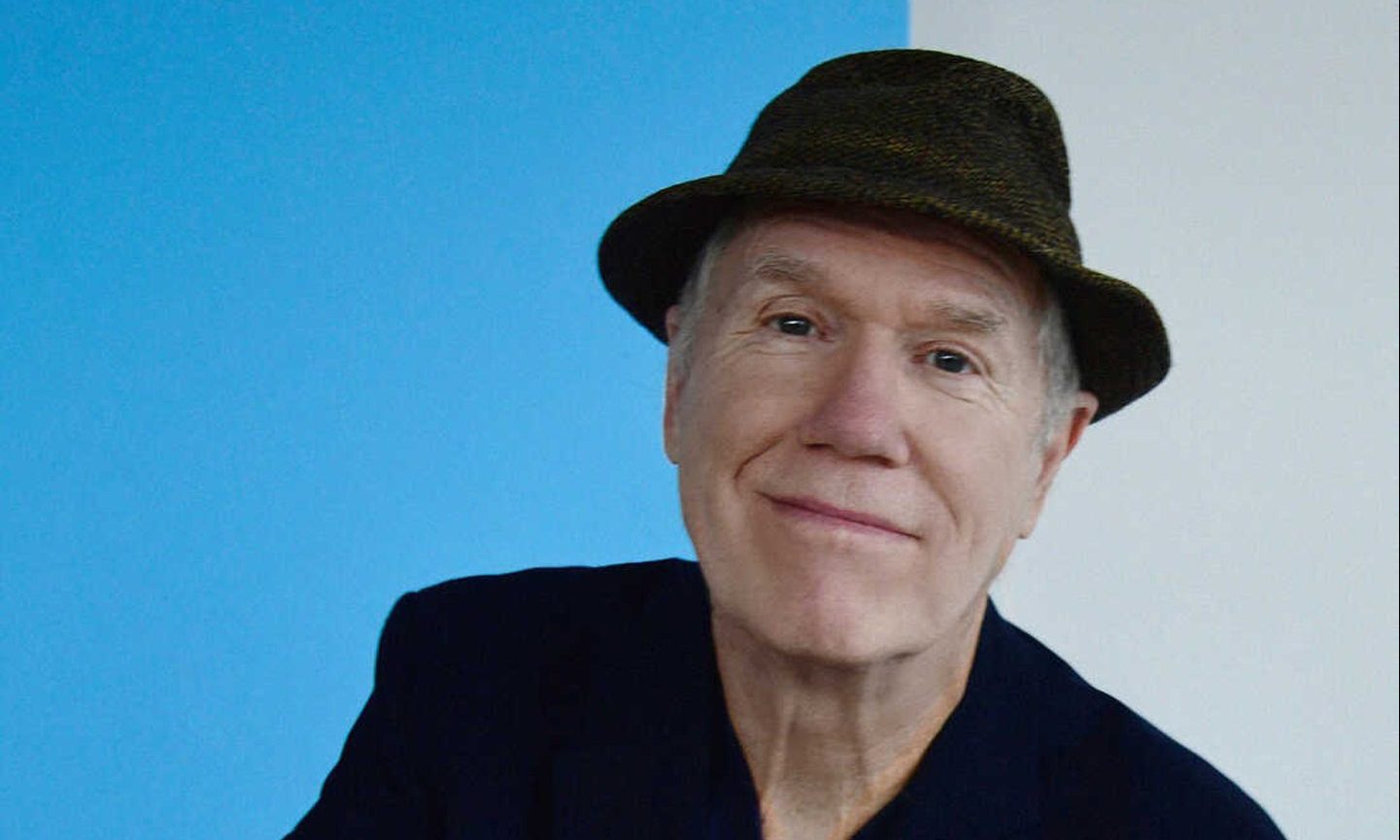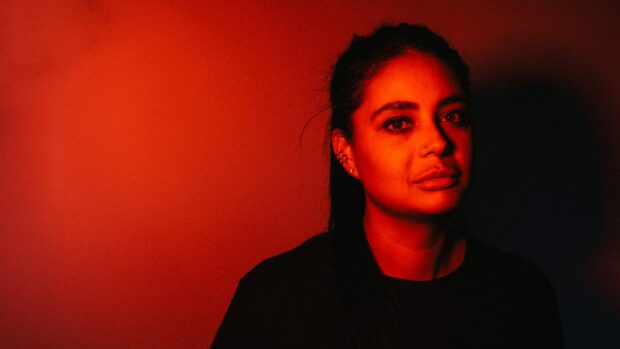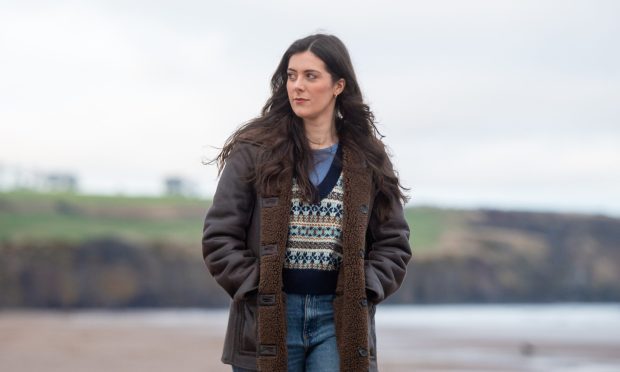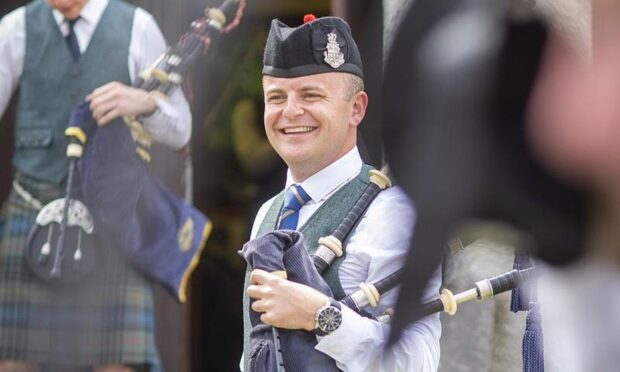Rob Adams speaks to BBC Young Jazz Musician 2020 finalist, saxophonist Matt Carmichael, who has released his first album, Where Will the River Flow.
Saxophonist Matt Carmichael, like musicians everywhere, has barely played in public over the past twelve months.
The set the 21-year-old from Lenzie played in early November, however, reached as many people in twenty minutes as many jazz musicians will play to in a year or more.
Carmichael didn’t win the BBC Young Jazz Musician 2020 title that afternoon but just reaching the final of the competition and appearing on BBC Four in front of a nationwide audience fulfilled an ambition he’d had since his mid-teens.
“I remember watching the final on TV a few years ago and thinking, I’d love to do that,” he says.
“I didn’t really think I’d ever get there, so it was kind of unreal to be standing playing in front of the cameras. It was also strange playing with musicians I’d only just met a few days before and I’m not sure I played as well as I could have done, but it was a great experience.”
Playing in front of a live audience numbering only a handful – the competition judges – was also quite unnerving.
Matt left, though, if not with first prize then with the praise of musicians of the calibre of trumpeter and arranger – and chief judge – Guy Barker ringing in his ears.
Album release
He’s since had a lot more praise from prominent observers as he releases his first album, Where Will the River Flow on Friday March 12.
Early reviews and comments from presenters on radio stations such as Jazz FM have enthused about Carmichael’s musicianship and the attractiveness of his original compositions.
Saxophone wasn’t Carmichael’s first choice of instrument. He took piano lessons for six months at the age of seven before deciding that the piano wasn’t for him.
He has since revised that opinion and composes exclusively on the piano. Even the first single he released from his album, The Spey, a fast-as-fury reel that conveys the rushing quality of Scotland’s fastest river in full spate and sounds like a saxophone test piece was created at the keyboard.
He was, he remembers, about eleven when the chance to try a saxophone came up at school. After his brief interest in the piano, his parents might have been justified in being sceptical about his keenness for this new instrument.
Depending on who’s telling the story – his teacher sensed a real aptitude in his young student; Matt’s version is that he was able to produce some sort of sound on it –the coming together was either a natural development or a fluke.
“I don’t think I’d even seen anyone playing the sax before,” says Matt.
“I’m not even sure that I’d heard one played before either and I think my first reaction was, this is something different, it’ll be cool to learn to play.”
Group lessons at school didn’t bode well. Then, when private lessons were arranged with Allon Beauvoisin, the baritone saxophonist and brilliantly dependable backbone in Scottish horn quartet Brass Jaw and sometime saxophone section “anchor” for the Scottish National jazz Orchestra, Matt didn’t really appreciate the jazz his teacher let him hear.
“Allon was really nice,” he says. “He made me a compilation disc of Charlie Parker, Michael Brecker, Chris Potter and other saxophonists, who were obviously brilliant but didn’t really appeal to me musically for some reason.
“But then I heard Brass Jaw and there was this really soulful solo that Konrad Wiszniewski played on one track and I thought, that’s what I want to do.”
Improvising, he says, seemed to come naturally, although that didn’t make his first experience of standing up and taking a solo with the East Dunbartonshire Schools’ Jazz Orchestra any easier.
“I think I was thirteen or fourteen when I joined the orchestra,” he says.
“I’d obviously never done anything like that before, so it was great to get a chance to play in a band onstage. But that first solo was absolutely terrifying. I was shaking. Of course, everyone in the band knows how it feels because your first solo – and everyone has to play their first solo at some point – is a rite of passage.
“But I didn’t realise that everyone else was shaking as they waited their turn too. “Anyway, I got through my chorus, or whatever it was, and the feeling of achievement was amazing.
“I can still get nervous if I have to stand up and solo in an orchestra even now but I think that feeling of overcoming the fear makes you play better. The adrenaline maybe makes you concentrate more.”
Inspired by Fergus McCreadie
It was while he was with the East Dunbartonshire Schools Jazz Orchestra that Carmichael heard a pianist on the radio who made him think, I want to play with him some day.
This was Fergus McCreadie, the pianist in Carmichael’s quartet as it now happens, a serial award-winner who is currently earning rave reviews for his own second album, Cairn.
McCreadie was fifteen at the time and was competing in the Under 17 section of the Young Scottish Jazz Musician of the Year competition, which he went on to win twice.
“I thought his playing was so advanced,” says Carmichael, “and I couldn’t believe he was so young from listening to him.”
It wasn’t long before his wish to play with McCreadie was granted. Having joined the National Youth Jazz Orchestra of Scotland, Carmichael found himself in the same band as McCreadie and playing music that has become one of his main sources of inspiration as the English saxophonist Iain Ballamy took the orchestra through some of his compositions in readiness for NYJOS’ summer tour.
“Apart from Brass Jaw, I’d only heard American jazz at that point,” says Carmichael. “Iain’s music was beautiful and very European. It made me want to check out other stuff that I listen to now, the whole ECM Records thing for example.
“At the end of that NYJOS tour, Fergus came up to me and said we should play together more. That was fantastic to hear and he obviously meant it because we’re still playing together.”
Playing with NYJOS gave Carmichael easy access to the jamming sessions that were taking place in and around the Royal Conservatoire of Scotland in Glasgow and eventually he auditioned and was accepted onto the jazz course there.
His course leader, the internationally recognised saxophonist Tommy Smith promptly invited Carmichael to join his youth jazz orchestra and has since gone on record as saying that Carmichael “is better than I was at his age.”
Once enrolled at the RCS, Carmichael took Fergus McCreadie up on his suggestion that they play together more. He invited the pianist to join his quartet, along with bassist Ali Watson and drummer Tom Potter, and the group is now an established unit.
“I wanted to have a band that kept a stable line-up because that’s the best way to develop the music,” he says, adding that as a saxophonist the onus is on you to form a band and look for work whereas drummers and bass players get asked to play.
He’s certainly gone about the bandleader’s job diligently. Before the pandemic brought live music to a halt his quartet had already toured the UK and played London venues including the hallowed Ronnie Scott’s club in Soho.
Scottish quality
Carmichael’s own music, like that of McCreadie, has a very Scottish quality.
Both musicians listen to traditional music, although Carmichael cites Irish musicians such as Caoimhín Ó Raghallaigh, the hardanger fiddle player who plays alongside the revered County Clare fiddler Martin Hayes in folk supergroup the Gloaming, as favourites as much as Scottish players.
“I think Fergus sees his music as folk music played with jazz attitude and technique,” he says.
“He certainly captures the landscape in his compositions and that’s what I try to do too. “When I wrote The Spey, Firth and Cononbridge, which are all tunes on Where Will the River Flow, I was thinking of these places where I spent the early part of my life. I haven’t lived there for quite a few years now but I still have a strong feeling for that area.”
Erasmus
Before the pandemic forced him to return to Glasgow, Carmichael was studying in Oslo on an Erasmus exchange from the Royal Conservatoire of Scotland and the Nordic influence can be heard in another track on his album, Sognsvann.
He graduates from the RCS this summer and is already planning his second album.
“It was a real pity that the Erasmus exchange had to end,” he says.
“I really enjoyed Oslo – Sognsvann is named after a lake just outside the city with a lovely, peaceful atmosphere.
“When we’re allowed to go out and play concerts again, it would be great to take that tune to Norway. Right now, though, I’d love just to go out with the quartet and play the music from the album anywhere.”
